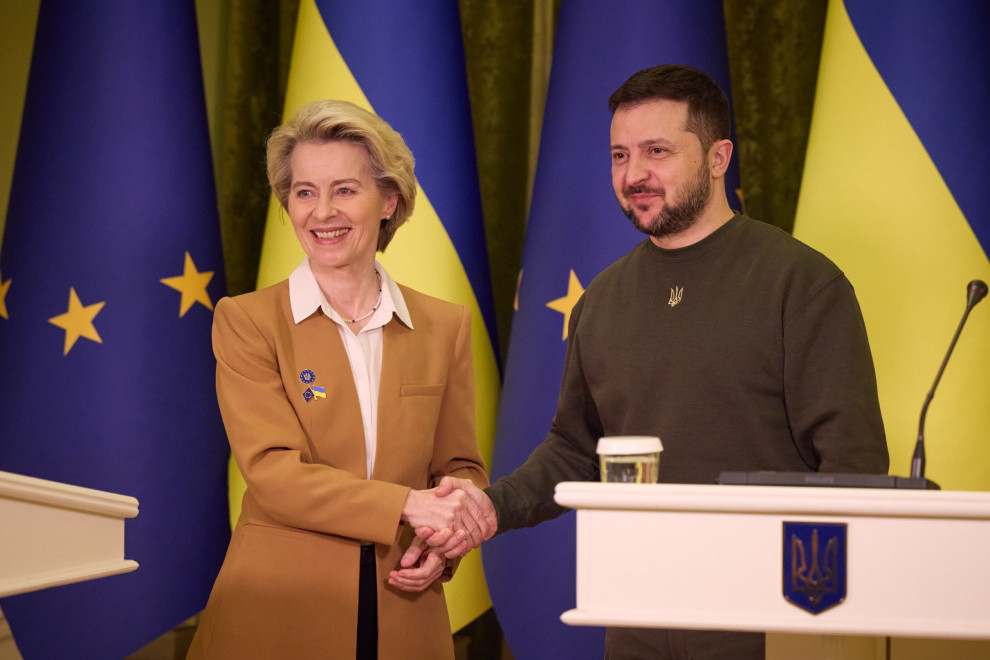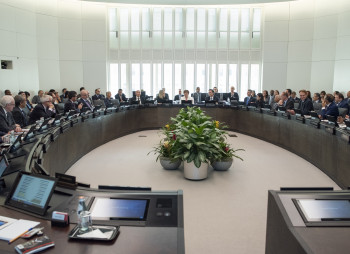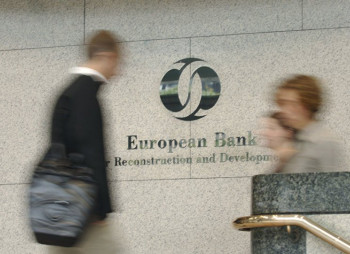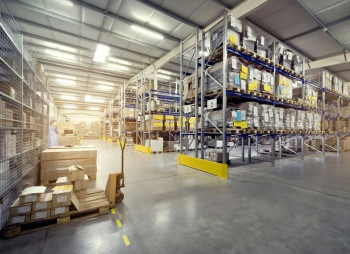The President of the European Commission, Ursula von der Leyen, travelled to Kyiv on 2 February 2023, accompanied by 15 Commissioners, for the first ever meeting between the College and the Ukrainian Government.
This meeting sent a strong signal of the EU's unwavering commitment to stand by Ukraine for as long as it takes, including with a new €450 million assistance package for 2023 announced during the visit. With this, the EU, its Member States and European financial institutions have made available around €50 billion to Ukraine, since the beginning of Russia's aggression. In addition to this, the Commission is working towards a €1 billion contribution to fast recovery.
The College to Government meeting co-chaired by President von der Leyen and Prime Minister Shmyhal, took stock of the EU's ongoing support to Ukraine in different areas, including financial, humanitarian, energy, budget support as well as diplomatic outreach. In addition, it looked into the reform efforts by Ukraine to advance on its EU path, and outlined further steps to enhance sectorial cooperation. At the same time, there were also discussions about how to make Russia pay for the brutal destruction it is causing, including about the upcoming tenth package of sanctions.
Main areas of EU support and cooperation with Ukraine
Further EU support
In addition to the up to €18 billion in macro-financial assistance for 2023, the EU announced a further €450 million in assistance that includes:
- €305 million in bilateral support to increase Ukraine’s resilience and support reforms
- €145 million in humanitarian assistance
Recovery and reconstruction
The Multi-agency Donor Coordination Platform was launched in January 2023 to coordinate short and longer-term support by international donors and financial institutions in support of the Ukrainian economy.
Emergency energy support
The EU is providing vital support to Ukraine to face the particular difficulties in the energy sector. This includes:
- the provision of 2,400 additional generators, on top of the 3,000 already delivered since the beginning of the aggression
- €157.5 million from the Energy Support Fund established by the Energy Community
- 35 million LED light bulbs purchased by the EU, to help Ukrainians reduce energy consumption
Economic cooperation and access to the Single Market
The Commission continues to assist Ukraine in reaping the full benefits offered by the Association Agreement, including its Deep and Comprehensive Free Trade Agreement, including via:
- A proposal to extend the suspension of import duties on Ukrainian exports beyond June 2023
- A Priority Action Plan for 2023-2024 - a roadmap for enhancing Ukraine’s access to the Single Marke
- Roaming - extension by six months of the voluntary measures by EU and Ukrainian operators for affordable or free calls between the EU and Ukraine
Strategic Partnership on Biomethane, Hydrogen and Other Synthetic Gases
This Partnership will expand the ongoing energy cooperation between the EU and Ukraine to renewable gases such as biomethane, hydrogen and other synthetic and sustainably produced gases. It reaffirms both sides' commitment to reduce dependency on fossil fuel imports, especially Russian gas, and work towards climate neutrality.
Support for reforms and closer alignment to the EU
Reform priorities and the steps necessary to help Ukraine further align its legislation to the EU acquis have also been discussed.
The Commission also announced that Ukraine will join key EU programmes:
- the Commission and Ukraine signed its association to the Single Market Programme, providing Ukraine with support to businesses, facilitating access to markets, favourable business environment, sustainable growth and internationalisation.
- Discussions will start soon about Ukraine joining other key EU programmes such as Connecting Europe Facility, that can support Ukraine in connecting its energy, transport and digital infrastructure with the EU.
A new ‘Phoenix’ initiative will boost the New European Bauhaus work on supporting Ukraine in rebuilding its cities in a sustainable and inclusive way. It will immediately mobilise at least €7 million, notably for developing and sharing leading-edge reconstruction expertise for Ukrainian cities.
Enhanced cooperation in the field of research
Ukraine’s association to Horizon Europe and the Euratom Research and Training Programme is a key instrument to preserve and nurture its research and innovation ecosystem.
The Commission will also open a Horizon Europe office in Kyiv to promote EU funding opportunities, and offer technical support to Ukrainian researchers and innovators.






